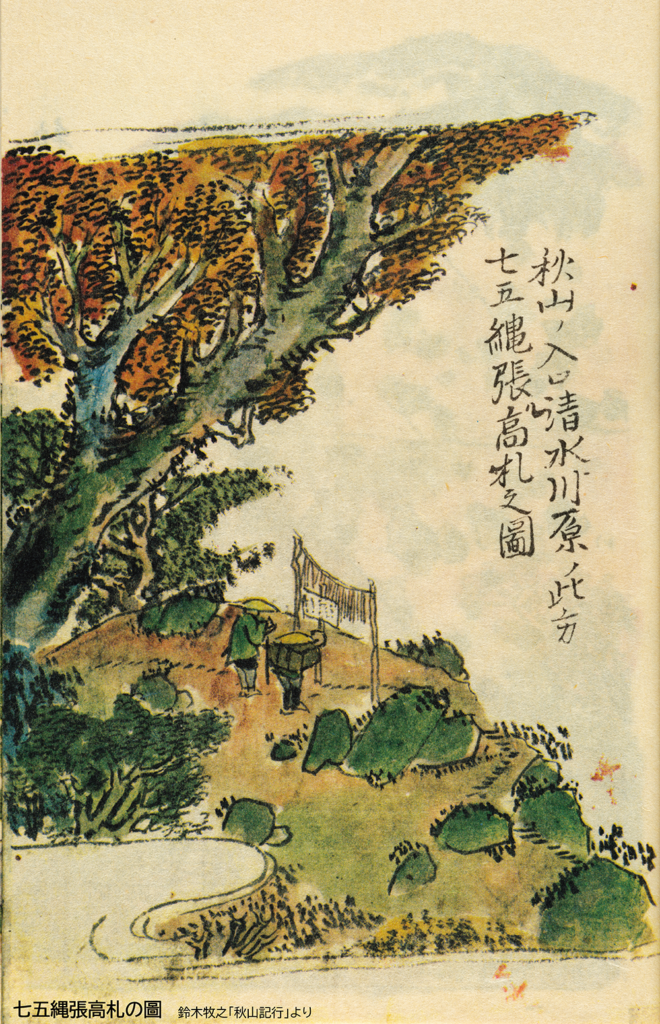Upon arriving at Shimizukawara, Suzuki Bokushi observed a proclamation forbidding the entry of smallpox patients into the village. The “Akiyama Travelogue” contains the following account:
As we approached the entrance to Akiyama, nearing a village called Shimizukawara, large old trees branched out, even obstructing the path and covering the sunlight. Climbing to a slightly elevated area, a shimenawa was stretched across, with a small proclamation sign (a written decree of the village’s rules) standing at its center. Reading it revealed, ‘No villager with smallpox shall enter or stay beyond this point.’ It seemed to be written in kana by a child. While resting here for a while, a bucket-maker commented, ‘People of Akiyama indeed possess a straightforward honesty. Even locals with smallpox, as well as merchants and medicine sellers, would claim, ‘We have no smallpox,’ and enter the village. Quite an interesting situation indeed.
Further literature on the treatment of smallpox patients in Akiyama region mentions:
“They detest smallpox greatly; anyone contracting it is isolated in a hut placed deep in the secluded mountains. Caretakers from outside the area are sought to nurse the sick, who are placed in such meager huts barely sheltered from rain and wind that they all end up dying. Without using medicine, they vehemently curse it as an evil spirit, disregarding even familial bonds, and upon death, the deceased are buried on the spot without later moving to a grave. Years pass without their graves being approached, merely left neglected. The neighboring village of Echigou in Ketou is the same.”
Additionally, it is said that Matsuo Basho avoided Echigou in his “The Narrow Road to the Deep North” due to the prevalent smallpox, based on information from a bucket-maker named Dangorou who served as his guide. The closest Basho came to Echigou was at Teradomari, where he penned the verse, “The rough sea stretching out towards Sado and the Milky Way.” In Niigata, he wrote, “The rain falling into the sea—how dearly I miss the temporary lodging,” reflecting his sentiments during the late summer and autumn. Basho, like many other literary figures, dreaded the autumn snows of Echigou and thus avoided the region, traversing through Kashiwazaki, Naoetsu, and Takada, then entering Kanazawa, Tsuruga, Ogaki, and Gifu without composing poems or travel logs about crossing the Echigou snows.

